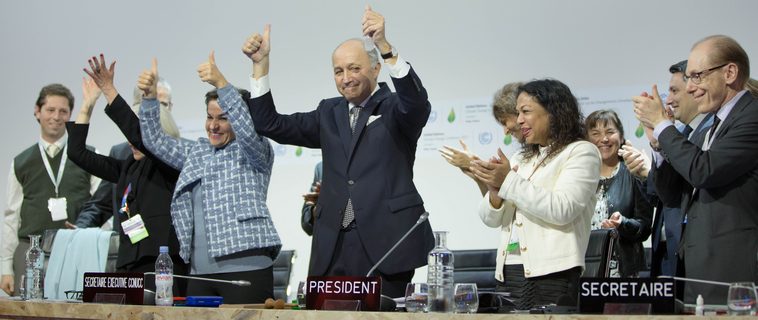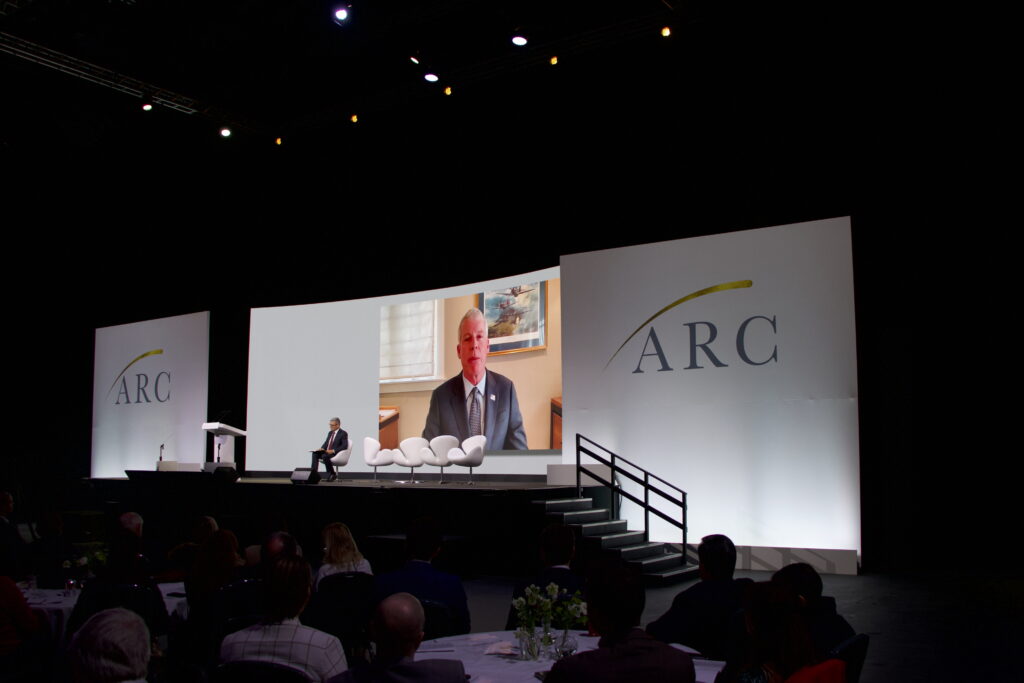Climate Nexus has published a helpful mythbusting page correcting the misinformation that is already being spread about the Paris Climate Agreement. It is rewritten here with permission.
Myths and Facts about COP21, the Paris Climate Agreement
MYTH: “Paris is not legally binding; it won’t change anything. China and India will still emit so much CO2 as to make all US reductions pointless.”
FACT: Paris does have legally binding aspects, and other nations are already taking action.
-
The Paris Agreement is legally binding in that each country’s pledge represents a domestically binding policy. The US commitment is based off existing law. The Clean Power Plan derives its authority from the Clean Air Act and Supreme Court rulings.
-
The international pressure of the “Name and Shame” aspect will provide ample incentive for countries to follow through, as past agreements have demonstrated the efficacy of this informal censure. With India and China joining the US, there is no longer any international support for further inaction.
-
China already started carbon markets in 7 regions in 2013, and has plans to begin phasing in a national carbon market in 2016. They recognize the health threat of coal burning, having banned new coal plants in key regions and reduced coal production by nearly 3% over the last year. China is also the largest investor in green energy globally, as seven of the top ten photovoltaic firms in the world are either Chinese firms or have their manufacturing facilities mainly located in China.
-
India has committed to installing 100 gigawatts of solar by 2022. This more than quadruples the solar targets India set last fall, and will increase the country’s installed solar capacity by a factor of nearly forty. The US currently has an installed solar capacity of about 16 gigawatts.
MYTH: “Paris will crash the economy and cost the US countless jobs.”
FACT: The clean energy economy is already on its way, as the world has grown GDP while emissions have leveled off, proving that carbon pollution and wealth are not as tied as critics suggest.
-
Preliminary data from the International Energy Agency suggests that carbon emissions from the energy sector stalled in 2014, even as the economy continued to grow. In 2014, American energy-related carbon emissions grew by 0.7 percent, while the GDP grew by 2.4 percent.
-
The IPCC has also estimated a very low annual GDP cost to climate action. The Global Commission on Economy and Climate found that if we focus heavily on low-carbon investments, it would add less than 5% to the total cost—a cost that would be offset by the economic benefits of things like energy efficient buildings and cleaner air, without even taking into account the many future benefits of avoiding further climate change.
-
Comparisons to the 1997 Kyoto Protocol fall flat, even according to Chuck Hagel, who co-sponsored the Congressional opposition to the Kyoto Treaty, on the grounds that not all nations will be held to reductions and it would harm the US economy. He has written in support of the Paris agreement.
MYTH: “Even if pledges are all fulfilled they won’t accomplish much.”
FACT: This claim is based on a single analysis from an author, Bjorn Lomborg, whose bias is questionable. This claim was quickly ridiculed by the scientists whose work is referenced as a supporting factor.
-
Already, countries’ commitments have bent the emissions curve significantly. Climate Action Trackerand Climate Interactive, in separate reports, both found that the national pledges have reduced expected warming by almost 1˚C.
-
If Paris pledges are ratcheted up successfully as a result of the agreement’s design of five-year reassessments, it may be enough to limit warming to less than 2˚C.
-
The MIT group that Lomborg references to reinforce his findings that Paris pledges won’t do much has said his paper, the basis of this line of attack, “appears to have no basis in fact.”
MYTH: “Regulations aren’t effective. We should simply focus on innovation, invention and the entrepreneurial spirit and adapt to any possible changes.”
FACT: Government policy drives innovation and adaptation alone will not be enough to avoid costly damages.
-
Eventually, the IPCC projects that some regions will begin to be uninhabitable, and food production will be threatened above what adaptation can deal with.
-
For example, KPMG estimates that climate change could put the total profit of the global food industry at risk by 2030, and the OECD predicts over $45 trillion of assets could be at risk by 2050 due to floods.
-
NASA spurred countless inventions and technological developments that grew the global economy. DARPA and ARPA-e have done the same. Government policy sends businesses a signal that there will be a market for types of products, in this case clean energy.
-
The focus on innovation and entrepreneurship is a talking point routinely used by the American Petroleum Institute to promote fracking.
MYTH: “Climate change doesn’t cause terrorism, was irrelevant to Syria, and we should address ISIS before worrying about warming.”
FACT: According to the Department of Defense, climate change acts as a “threat multiplier”, helping create conditions that facilitate the rise of unrest and provide a space for terrorism to rise and posingan immediate risk to US national security.
-
The Department of Defense has analyzed the climate threat and wrote a climate change adaptation roadmap for addressing the threat of climate change to national security efforts.
-
Peer-reviewed science has established a link between climate change and violence generally, and Egypt and Syria specifically.
-
Retired Navy Rear Admiral David Titley has written an op-ed summarizing the defense community’s position on climate change being a threat multiplier, creating conditions that are conducive to the rise of terrorism and unrest.
Main image credit: UNFCCC
Subscribe to our newsletter
Stay up to date with DeSmog news and alerts







